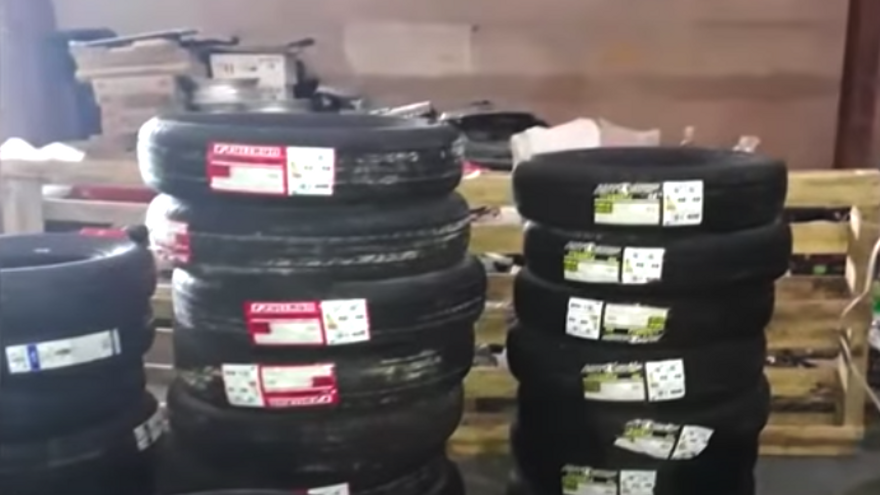
![]() 14ymedio, Havana, August 2, 2020 — In the bull’s eye of the police and the official campaigns are now hoarders and coleros (someone paid to stand in line for someone else), whom the Government blames for the shortages. The case of a resident in the Havana municipality of Cotorro, accused of “illicit economic activity” and “”contraband,” is added to other arrests of this type denounced in the national media.
14ymedio, Havana, August 2, 2020 — In the bull’s eye of the police and the official campaigns are now hoarders and coleros (someone paid to stand in line for someone else), whom the Government blames for the shortages. The case of a resident in the Havana municipality of Cotorro, accused of “illicit economic activity” and “”contraband,” is added to other arrests of this type denounced in the national media.
The police confiscated hundreds of auto parts, in addition to cash and three houses belonging to a citizen who was selling accessories and auto repair services, according to a report transmitted on July 29 by the Caribe Channel, in which it defined the businessman’s arrest as part of “the battle against illegalities and corruption.”
In the report can be seen images of police officers entering a home with several rooms in which there are hundreds of spare parts for vehicles. The video also includes a tour through another two houses linked to the accused. One of them was rented out as a glassworks to another citizen.
In this domicile, the police seized 158 plates of glass and 17 window frames, “on which they were working to determine their origin,” the report specified. In the cash registers of the three homes, they found 15,870 euros, 1,100 dollars, 68,718 convertible pesos and 57,010 Cuban pesos.
First Lieutenant Susana Cañizares Corps said that the “negative economic effect” on the country is more than 306,000 Cuban convertible pesos. This affirmation is accompanied by the statement of Gustavo Reyes Sierra, business director of the State company, Auto Parts, who says he has no idea how the accused “can have this volume of auto parts.”
Sierra reminds us that when these types of products are imported as personal effects, “in no case can they be used commercially. This is such a considerable quantity it had to be acquired inside the country,” he adds, saying he opened his door to businesses or individuals with the legal capacity to import commercially and they might be involved.
“There’s a huge volume, and they’re from the same lot,” Sierra says about the hundreds of tires found in the place. A statement that points to a possible network of corruption in the State import infrastructure, a route that is regulated by the authorities but frequently used for bringing in merchandise to the black market.
This Wednesday’s report is nothing new. From the beginning of the pandemic they have escalated persecution and punishment of those who practice “illicit economic activities,” “speculation” and “hoarding,” crimes that are especially sensitive for a country that suffers from chronic shortages, now aggravated by Covid-19.
Several trials of these presumed offenders have been televised as “exemplary measures,” and the police have allowed State media to accompany the agents on the raids to capture the criminals, who are identified and interviewed on camera.
Translated by Regina Anavy
_______________
COLLABORATE WITH OUR WORK: The 14ymedio team is committed to practicing serious journalism that reflects Cuba’s reality in all its depth. Thank you for joining us on this long journey. We invite you to continue supporting us by becoming a member of 14ymedio now. Together we can continue transforming journalism in Cuba.
